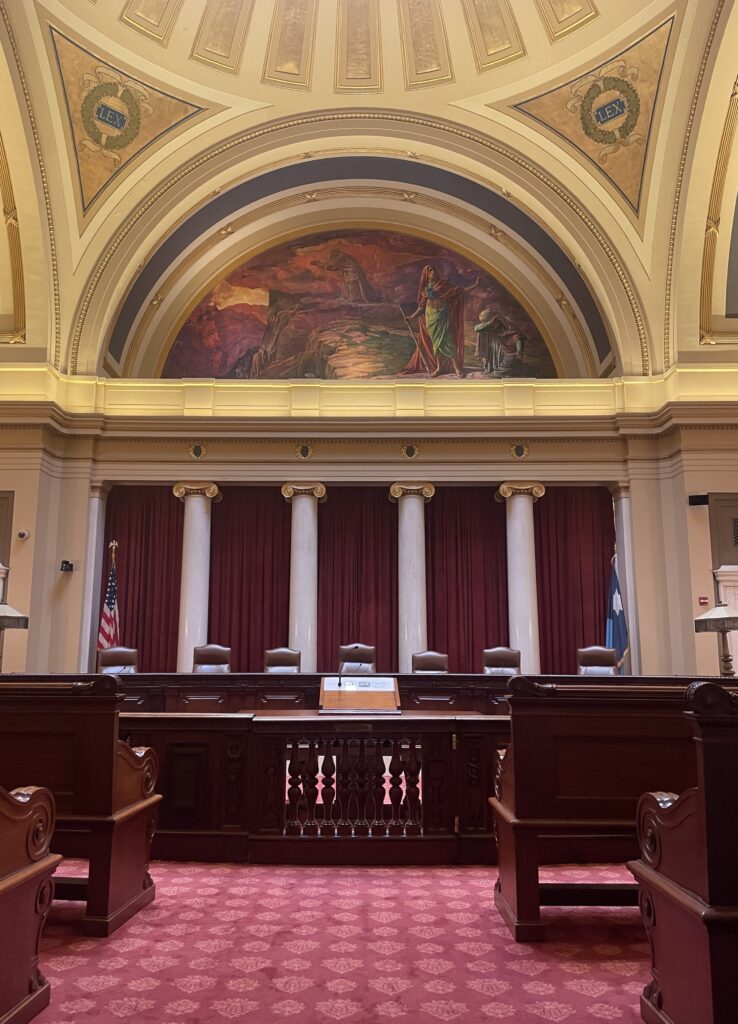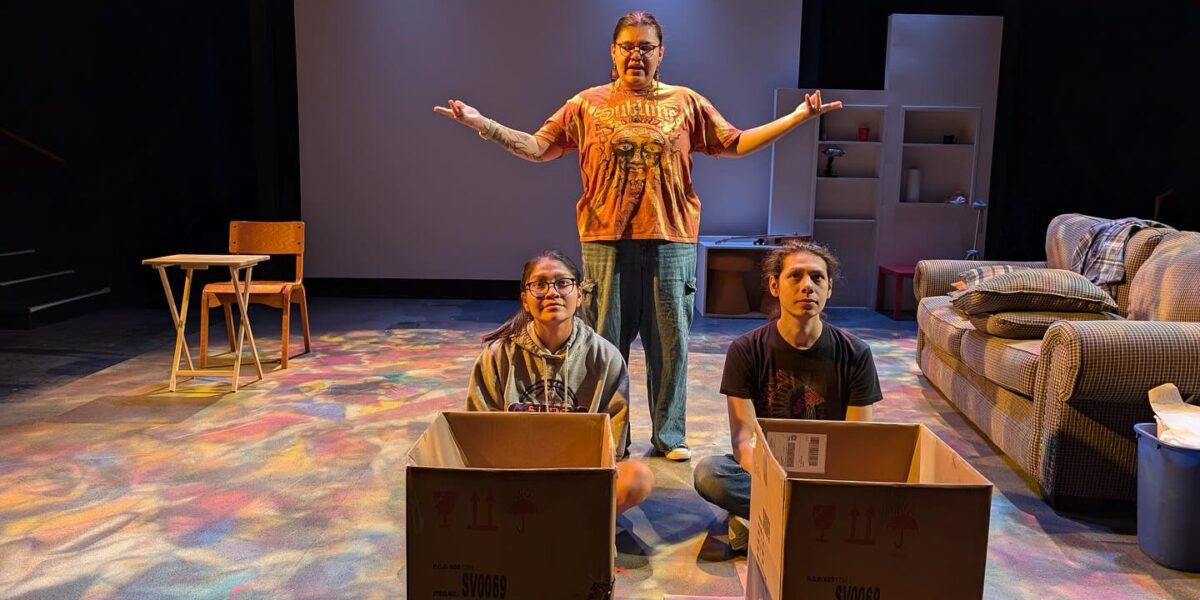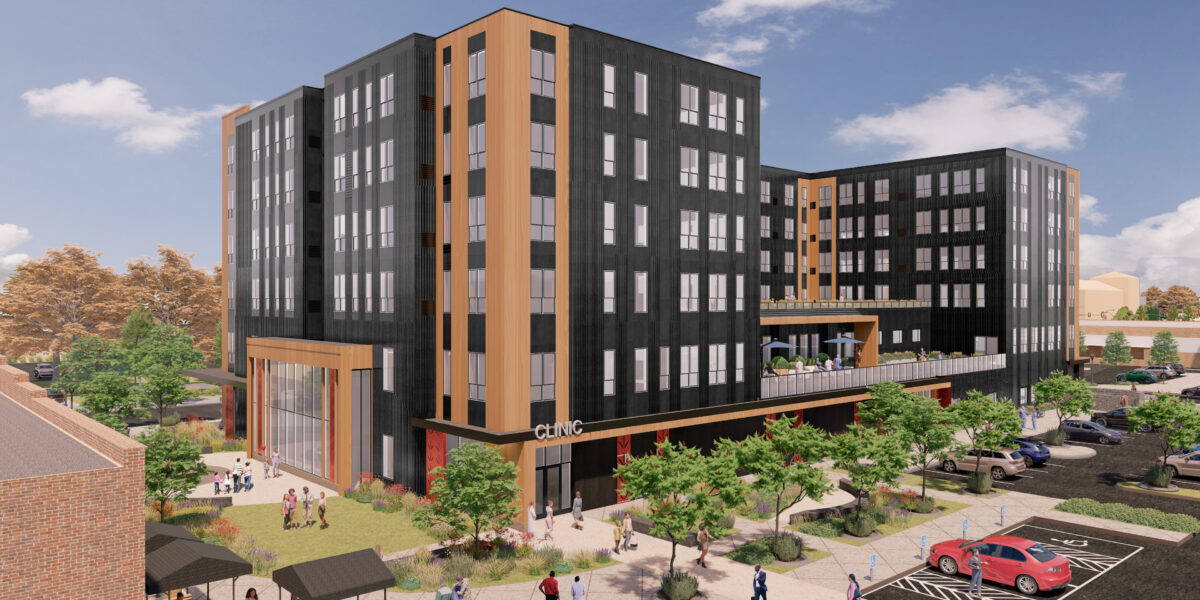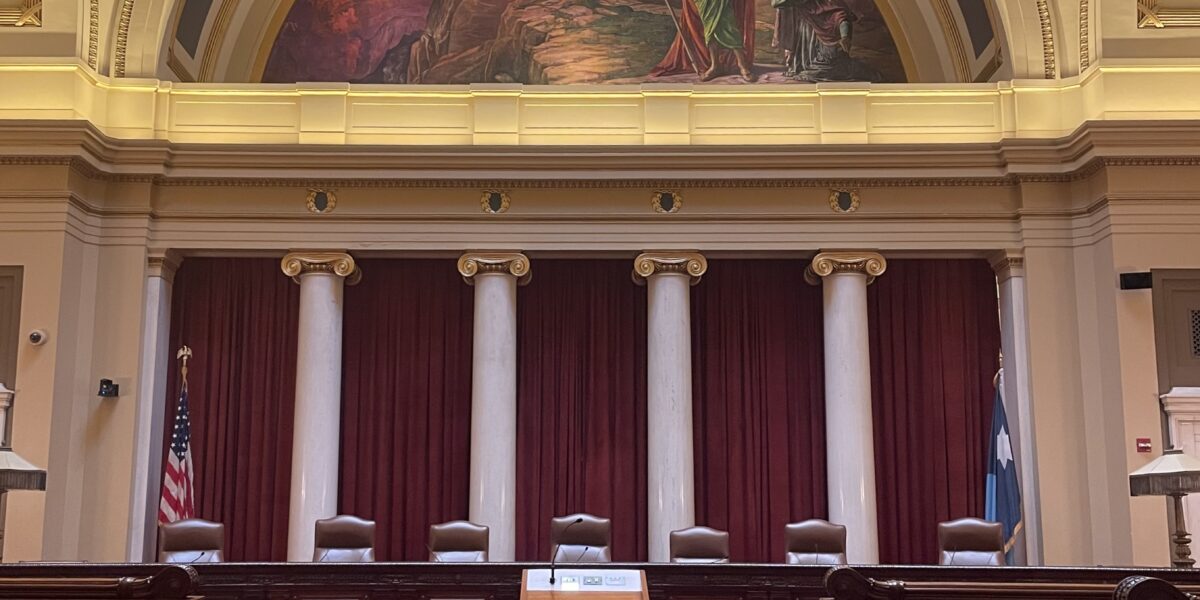
TRANSCRIPT
[sound element: flute music]HOST Marie Rock: This is Minnesota Native News. I’m Marie Rock. This week, the Minnesota Supreme Court heard arguments in a case that could reshape child custody laws for Native American children. At the heart of the case is a challenge to the Minnesota Indian Family Preservation Act, or MIFPA. Reporter Emma Needham has more.
[sound element: MN Supreme Court Chief Justice Natalie Hudson: “…. We have two cases on our oral argument calendar this morning. The first case is in the matter of the welfare of the children of LK and AS…..”[fades out] [Sound Credit: mncourts.gov]Emma Needham: Shortly after their birth in 2022, twin toddlers from Miskwaagamiiwi-Zaaga’iganing, the Red Lake Nation, were placed in foster care by child protection services. Due to their status as “Indian Children,” the twins’ case is subject to a law called the Minnesota Indian Family Preservation Act, or MIFPA, which is designed to keep Native American children in the care of their relatives and connected to their Tribal community during child protection proceedings.
[sound element: Guardian Ad Litem and Respondent Counsel m boulette: “Good morning, your honors and may it please the court, m boulette, representing the guardian ad litem and arguing today on behalf of all respondents.”] [Sound Credit: mncourts.gov]EN: Over a year after placement, the twins’ foster parents were informed that the Red Lake Nation, Faribault County, and Martin County supported placing the children with their direct relative instead, who is a tribal member. The foster parents opposed this decision. They filed a motion in court, arguing that the law discriminated against them based on their race, raising constitutional questions about MIFPA and the federal Indian Child Welfare Act (ICWA). Here’s the legal counsel for the foster family, Jeff Markowitz :
Appellant Counsel Jeff Markowitz: “… for this court to declare ICWA MIFPA unconstitutional, it would say, no longer will people be discriminated at the courthouse doors and told they must go into a certain column based on whether or not they are Indian.“]. [Sound Credit: mncourts.gov]
EN: Associate Justice Anne McKreig challenged this idea:
Assoc. Justice Anne McKeig: “ I mean, she’s a blood relative. Nobody can, nobody can object to that …Why is that discriminatory?“] [Sound Credit: mncourts.gov]
EN: ICWA and MIFPA support Native sovereignty by prioritizing placement with approved relatives of Indigenous children.
EN: M boulette, Counsel for the guardian Ad Litem, also argued on behalf of the Red Lake Nation and both Minnesota counties.
Respondent Counsel m boulette : “…there is no sense in which ICWA and MIFPA have been applied to appellant’s benefit or detriment. And so this is not a case to invalidate decades of child protection law, protecting tribal members and tribal eligible members.”[Sound Credit]
EN: Boulette says there’s no way to predict when the court will make a decision. Earlier, in 2024, Minnesota’s Courts upheld the twins’ placement, and in 2022, the US Supreme Court upheld the federal Indian Child Welfare Act with a 7-2 majority. The country’s highest court did not rule on the constitutionality of the law, however, determining that there was no standing, or harm, suffered by the parties that brought the case to their court.
A decision is expected later this year. When it arrives, the Minnesota Supreme Court’s ruling could significantly impact child welfare law and the children it protects. For Minnesota Native News, this is Emma Needham.
[sound element: Children laughing in public, fades out]HOST Marie Rock: Next, the proposed Safeguard American Voter Eligibility, or SAVE Act bill, is currently in Congress. It’s raising concerns about voting among Native communities across the country. Here’s Reporter Emma Needham.
[sound element: typing on keyboard]Emma Needham: Right now, most states allow voter registration online, through state-approved websites. If the SAVE Act passes, every voter would have to register in person and provide a passport or birth certificate, in addition to a government-issued photo ID, to verify their citizenship.
[sound element: Chairman Steil Opening Remarks on SAVE Act at Rules Committee: “…testify in support of HR 22, the Safeguard Voter Eligibility Act...[fades out] [Sound Credit: Committee on House Administration, House proceedings on SAVE Act ]EN: Over a million Americans don’t have a passport, and individuals could face challenges if their documents don’t reflect their current name for any reason, including marriage. For Native people in Minnesota, there are other challenges.
[sound element: Paper rustling, sounds of people talking]EN: Kevin Allis, CEO of the National Congress of American Indians and member of the Forest Lake Potawatomi Community raised alarm about the SAVE act. He stated: “Factors such as remote reservation locations,…limited access to government services, and poverty make it difficult for many Native citizens to meet new identification requirements.”
[sound element: Paper rustling, sounds of people talking]
The bill is currently being considered in the U.S. House. For Minnesota Native News, I’m Emma Needham
ANCHOR Marie Rock: FUNDER CREDIT
More from Minnesota Native News
- New Native Theatre’s 15th Year & REAL ID
 This week, how REAL ID requirements impact Indigenous people, especially Two-Spirit individuals. Also, New Native Theatre’s latest play runs April 16-May 4.
This week, how REAL ID requirements impact Indigenous people, especially Two-Spirit individuals. Also, New Native Theatre’s latest play runs April 16-May 4. - Ziigwan Biidaajimowin (Spring News): NACC Issues Call for Artists and Little Earth Kicks Off American Indian Month with a Parade
 This week, Minneapolis’s Native American Community Clinic (NACC) seeks artists to commission pieces for their new building. Plus, nearby, the Little Earth of United Tribes housing community will kick off May’s American Indian Month with a celebration organized in part by the Minneapolis Public Schools American Indian Youth Council, Ogichida Oyate
This week, Minneapolis’s Native American Community Clinic (NACC) seeks artists to commission pieces for their new building. Plus, nearby, the Little Earth of United Tribes housing community will kick off May’s American Indian Month with a celebration organized in part by the Minneapolis Public Schools American Indian Youth Council, Ogichida Oyate - Indian Child Welfare Law Challenged at MN Supreme Court and Native Nations Impacted by Proposed SAVE Act
 This week, the Minnesota Supreme Court heard arguments in a case that could reshape child custody laws for Native American children. Also, the Safeguard American Voter Eligibility (SAVE) Act would require all Americans to prove their citizenship in person with official documents when registering to vote.
This week, the Minnesota Supreme Court heard arguments in a case that could reshape child custody laws for Native American children. Also, the Safeguard American Voter Eligibility (SAVE) Act would require all Americans to prove their citizenship in person with official documents when registering to vote.
Subscribe to Minnesota Native News in your favorite podcast app

 Dr. Amber Annis: Rebuilding Community with the Native Governance Center
Dr. Amber Annis: Rebuilding Community with the Native Governance Center